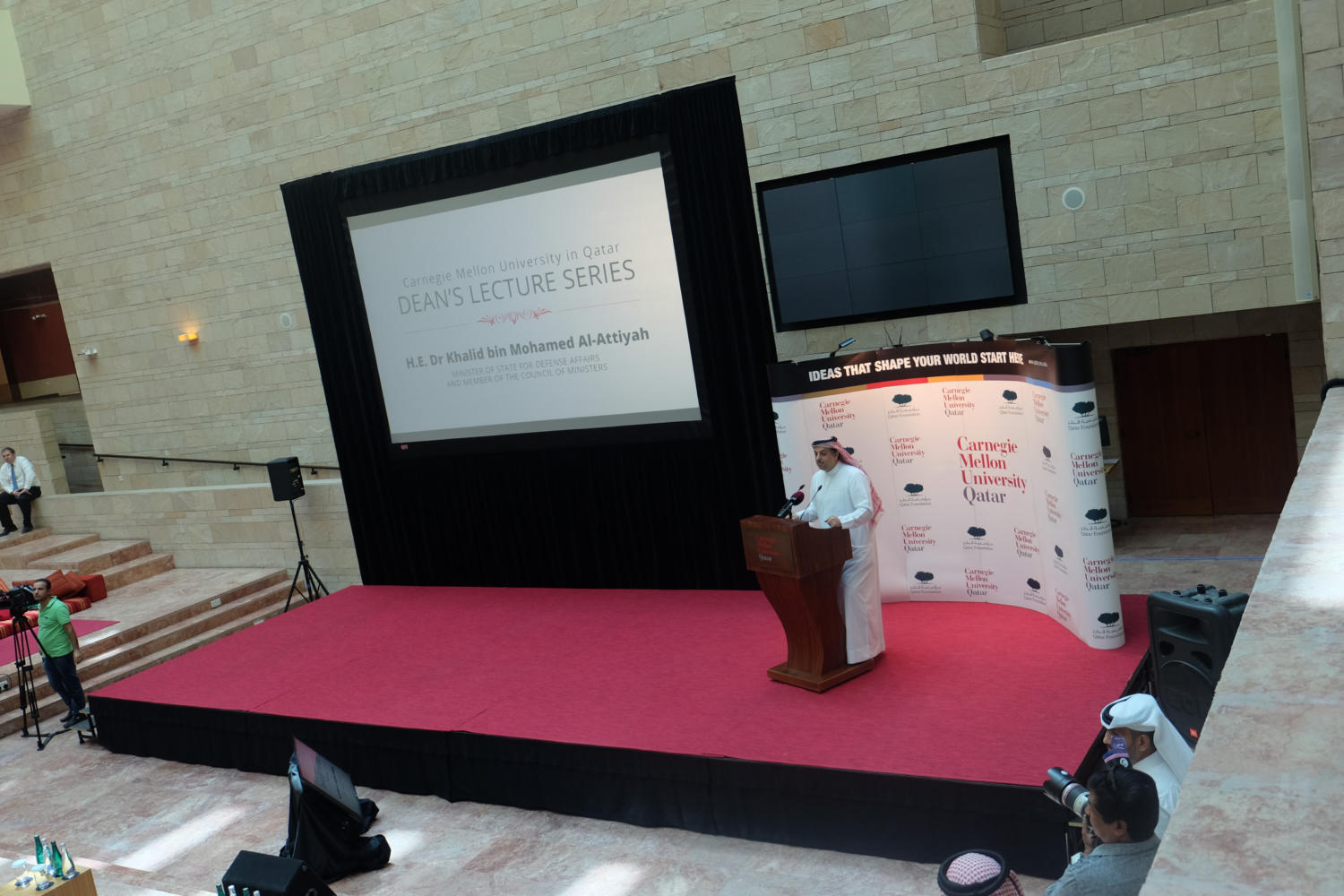Cyber attacks on a political stage: Defense Affairs Minister speaks at CMU-Q

Qatar faces unconventional dangers that threaten the fabric of its society, the Qatari Minister of State for Defense Affairs Khalid bin Mohamed Al-Attiyah said in a speech addressing the social and economic implications of electronic attacks at Carnegie Mellon University in Qatar on Tuesday, Sept. 26.
Al-Attiyah described his younger years as a fighter pilot in the Qatari armed forces. He said he was “in many instances either subject or witness to real danger,” having flown in hostile skies and faced various crisis situations.
The minister stressed the difference between the dangers he faced in the army and the ones Qatar’s residents are facing today as a community.
“The dangers me and my colleagues experienced… were tangible. I can tell you that today’s dangers are no longer tangible. We face adapted malicious methods… now targeting our young from behind a keyboard,” said Al-Attiyah.
He further discussed the advanced nature of modern warfare technology, such as unmanned aerial vehicles, ships and ground machinery. However, he described these advances as coming at a significant cost, adding that “we are becoming more perceptible to attacks by one click of a button.”
Several efforts are now in place to improve Qatar’s defense system against electronic attacks. According to Al-Attiyah, Qatar is developing its cyber capabilities, creating enduring infrastructure, and building strategic relationships with nations in an effort to progress its abilities.
In order to place this issue into perspective, the minister discussed a “hypothetical case study” in which a number of state actors decided to boycott and besiege their wealthy, small neighboring state.
He said that after the besieging countries failed to convince their societies of their convictions, they “concocted a plan to hack the national news agency of the small wealthy nation… and attributed a false statement to the head of the state.”
Although the consequences of the cyber attack caused both economic and social unrest, the people proved resilient. “They came out in solidarity… and the society emerged unified in its leadership,” said Al-Attiyah.
The minister’s description of this hypothetical case study drew laughs from the audience as it was clearly implied that he was referring to the Gulf blockade against Qatar and the UAE’s hacking of the Qatar News Agency.
He ended his speech by reiterating the need for “an understanding of the ever-expanding world of cyber intelligence.”
Al-Attiyah’s speech attracted a varied audience. CMU-Q students, staff and faculty were joined by alumni and students and visitors from within and outside Education City.
Audience members asked diverse questions, including why cyber attacks are difficult to bring to justice, and what was being done to raise awareness among future generations on the dangers of cyber attacks and need for cybersecurity.
The minister replied that prosecuting cyber attacks is not a straight forward process, and that one must, “take [their] time to build the case properly, and when the time comes… there will be a legal case.”
Looking forward, Al-Attiyah stated that currently there is government outreach to institutions such as CMU-Q, Texas A&M at Qatar, and Qatar University.
“We are building our own cyber academy with our partners… we will take it to the virtual level of cybersecurity,” he said.












